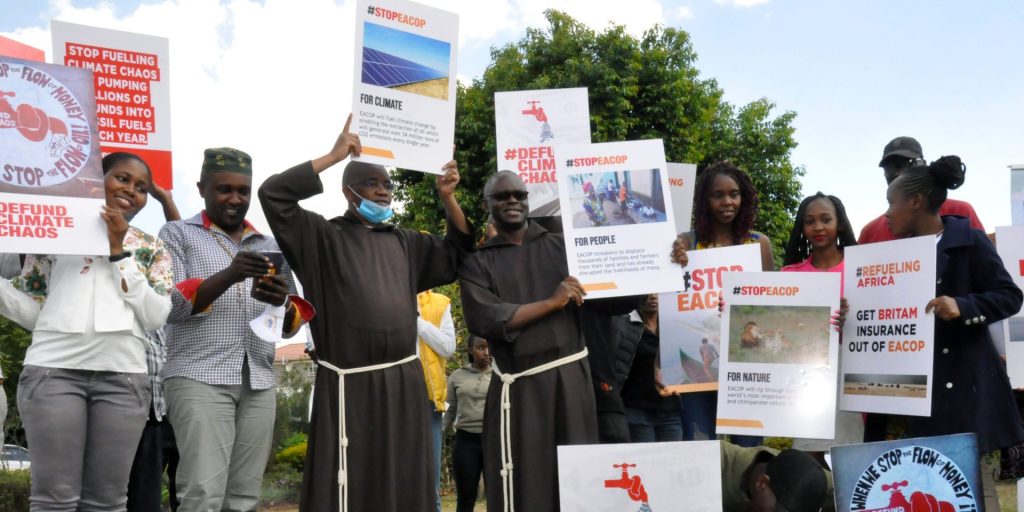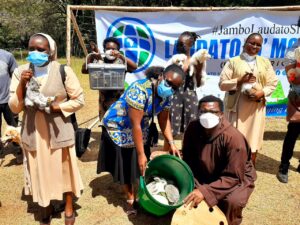
Laudato Si’ Animators in Africa
In his 10 years in the papacy, Pope Francis has visited more than 50 countries. His first trip in 2023 with the motto “All reconciled in Christ” will be from January 31 to February 5, 2023 to the Democratic Republic of Congo and South Sudan, a trip that was initially planned for July 2022.
“I carry within me, in prayer, the suffering that you have felt for so long, too long.”
(Video message to the DRC and South Sudan, Pope Francis).
Why visit Africa?
Papal journeys are called ‘apostolic journeys’ because they fulfill a mission of accompanying a community and responding to the nation’s cries.
What is happening in these countries?
These two countries are among the 10 poorest countries in the world: the economic pressure they suffer from external countries, overexploitation of resources, pollution, and modern slavery, has led to social instability in the form of violence, armed crime, extreme poverty, black market and forced migration as a result of these inhumane conditions.
It has been criticized that the internal war experienced by this country (and others in similar conditions) has been provoked by external countries eager for wealth to destabilize the population, its politics: and thus have easy access to its economy. Catholic groups have organized pacifist marches denouncing this situation.
Congo’s natural wealth
Congo, located in Central Africa, is one of the largest and most populous countries on the continent with 97 million habitants and 200 ethnic groups. It is a largely Christian country, with increasing religious vocations.
It also has the second largest rainforest in the world – after the Amazon – functioning as the second largest climate regulator on the planet: purifying water, maintaining a great diversity of species and capturing CO2.
“Those richly biodiverse lungs of our planet which are the Amazon and the Congo basins, or the great aquifers and glaciers. We know how important these are for the entire earth and for the future of humanity” (LS #38).
How has climate change affected the conditions of the rainforest and of the African people?
Congo exports minerals, timber, oils, fruits, animal products – and more – to powers such as China, South Korea, Japan, the European Union and the United States. Overexploitation and plundering have been an important part of its deterioration – of the land and its inhabitants – in the short and long term.
Deforestation and forest degradation rates are increasing, resulting in the loss of a large reservoir of biodiversity and CO2 repositories, not only regionally, but also globally. These are issues that require a concerted global response.
Governments and businesses must stop funding the drivers of biodiversity loss and put more capital into supporting biodiversity conservation and Indigenous communities to safeguard sacred land in the global south.

Laudato Si Animators in Africa
That is why protecting the biodiversity of this country is protecting life on the African continent and the rest of our planet. Everything is interconnected. To protect the Congo Forest is to protect children, families, the world economy and our future generations.
As a global Catholic family, we are raising our voices and advocating on behalf of the most affected among us for no more biodiversity loss. We also call for addressing the climate and biodiversity crises to protect the earth.
“The warming caused by huge consumption on the part of some rich countries has repercussions on the poorest areas of the world, especially Africa, where a rise in temperature, together with drought, has proved devastating for farming. There is also the damage caused by the export of solid waste and toxic liquids to developing countries, and by the pollution produced by companies which operate in less developed countries in ways they could never do at home, in the countries in which they raise their capital” (LS #51).
Do you want to learn more about these realities? Watch The Letter Film
Do you want to protect Creation with your local community? Join Laudato Si’ Animators





